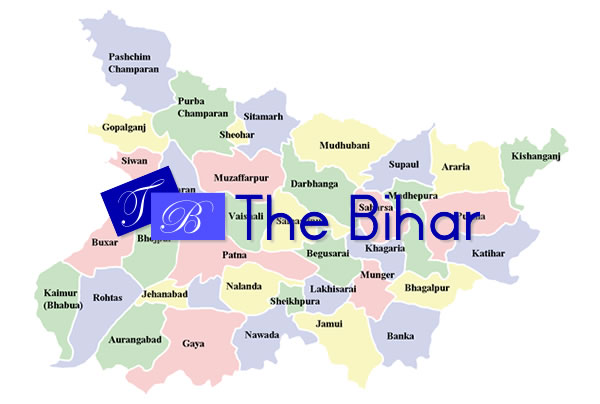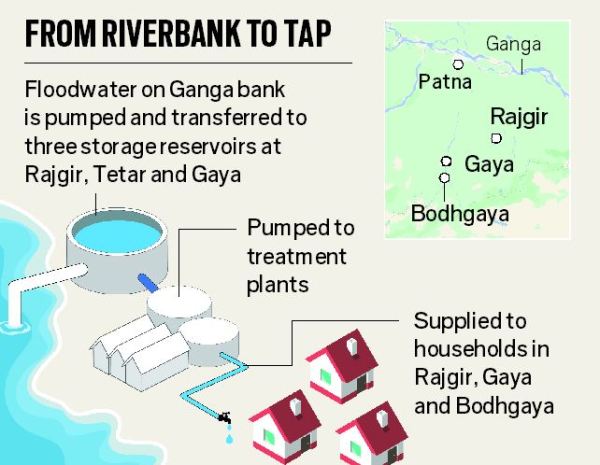Muzaffarpur rapes reduce JD(U)’s bargaining power in Bihar, it’s advantage BJP now
5 min read New Delhi: Bihar chief minister and JD(U) president Nitish Kumar has been on the backfoot ever since the case of sexual exploitation was unearthed at a shelter home in Muzaffarpur last month.
New Delhi: Bihar chief minister and JD(U) president Nitish Kumar has been on the backfoot ever since the case of sexual exploitation was unearthed at a shelter home in Muzaffarpur last month.
Sources in the JD(U) told ThePrint that apart from the Opposition, even the BJP’s actions in the case have pushed Nitish Kumar into a corner.
From Parliament to Governor’s residence, pressure on JD(U)
On 24 July, when Congress MP Ranjeeta Ranjan raised the issue in the Lok Sabha, home minister Rajnath Singh said that if the state government was willing, the CBI could take over the case.
The Bihar DGP responded on the same day, insisting that there was no need for a CBI investigation as, he added, the police probe was more than satisfactory.
JD(U) leaders feel that this was an attempt by the Centre to leave Nitish in a bind, as refusing to order a CBI inquiry, especially after the home minister’s statements, may give off the impression that state government was attempting to shield somebody in the case.
The chief minister relented on 26 July, recommending a CBI probe in the case.
As if this was not enough, on 1 August, Bihar governor Satyapal Malik wrote to Nitish, the chief justice of the Patna High Court, Rajendra Menon, and union law minister Ravi Shankar Prasad, terming the incident as “heart rending” and calling for a speedy trial in the case.
The governor’s office followed up with media houses to carry the letter, making the JD(U) suspicious of its motives.
“The governor has not written the letter on his own. He must have been asked by someone in Delhi to do this. At best, he could have called the chief minister to his residence and asked for a detailed report on the investigation,” said a senior JD(U) leader. “But this was done to embarrass the government.”
The governor’s letter to chief justice led to the Patna High Court taking cognisance of the case. A court-monitored CBI probe was one of the primary demands of the opposition Rashtriya Janta Dal (RJD) leader Tejashwi Yadav, who has been at the forefront of taking on the Nitish government in the case.
The Verma resignation
The JD(U) also feels that the BJP aided in the efforts to force the resignation of Bihar social welfare minister Manju Verma. Her husband Chandeshwar Verma had been pulled into the controversy over his alleged closeness to main accused Brajesh Thakur. The shelter home was also run under a project by the social welfare department, which is under Manju Verma’s ministry.
On 5 August, senior BJP leader and from union minister C.P. Thakur joined the opposition chorus in demanding the minister’s resignation. Thakur said the case was due to a lapse on the part of the social welfare department and demanded Verma’s resignation on moral grounds.
On 6 August, the chief minister promised that if there was any sign of her involvement, the minister would resign. She was not resigning then, he added, as there was nothing to connect her to the case.
Later in the day, Bihar deputy chief minister Sushil Kumar Modi, a senior BJP leader, backed Verma, saying that just because some people were making allegations, the minister need not resign. This was echoed by Bihar BJP president Nityanand Rai, but that was as far as BJP solidarity with its ally went. The rest of the party’s leaders and ministers stayed mum on the issue.
Two day later on 8 August, media reports surfaced of alleged phone calls between Brajesh Thakur and Chandeshwar Verma. The report citing police sources appeared to have based on the call detail records (CDRs) of main accused Brajesh Thakur. In all, 17 calls were exchanged between Thakur and Chandeshwar Verma this year.
JD(U) leaders feel that the CDR was selectively offered to the media to put the pressure on Nitish Kumar. Finally, Nitish succumbed, and Manju Verma was made to resign on the same day of the media reports.
Senior Bihar JD(U) leader Ashok Choudhary admits there are “forces” against his party but doesn’t name the BJP. “There are forces in the system that are trying to tarnish Nitish Kumar’s image of good administrator,” he says. “But Nitish Kumar has earned this image by constantly working hard for Bihar and it’s the people who will ultimately decide. No one should ignore the fact that it was Nitish Kumar government that ordered a social audit of the shelter home by a private agency, the Tata Institute of Social Sciences (TISS). No should question the intent of this government.”
‘Nitish a national leader’
To counter what it believes are attempts to reduce its bargaining power over seats for the 2019 Lok Sabha elections, the JD(U) has begun projecting Nitish as a national leader.
The JD(U) has begun crediting its chief for the victory of its nominee, Harivansh Narayan Singh, in the Rajya Sabha deputy chairman elections on 9 August.
“It was because of phone calls made by Nitish Kumar that we got support from parties that are not with the NDA,” argues Choudhary. “What happened in the elections of the Public Accounts Committee (PAC) is there for everyone to see. Nitish has nationwide support as a leader and anyone trying to scuttle his prospects is living in a utopia.”
The seat sharing in Bihar has not been finalised between the NDA allies. In the past, JD(U) has flexed its muscle to position itself as the leading member of the alliance. The recent controversy, however, may have left it vulnerable.
The JD(U) fears that the controversy could alienate women voters, whom the chief minister actively tries to win over in every election. Right from providing cycles to young school girls in his first term post 2005, to the liquor ban in his current term, Nitish has always focused on women voters.
The sexual abuse case may dent his standing in this constituency of voters and the BJP appears to know to hit where it hurts him the most.
Courtesy: The Print


